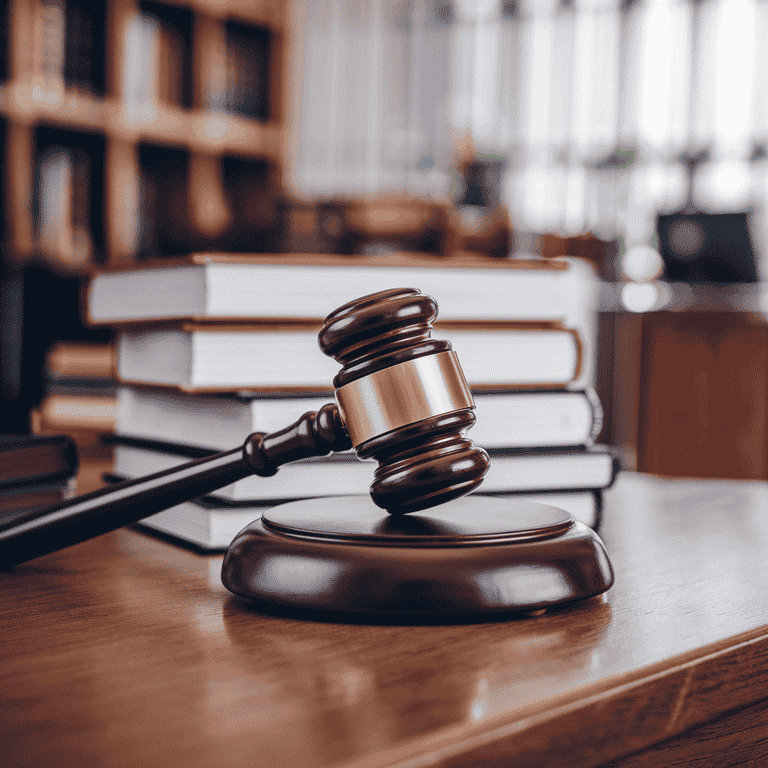Grand Theft Charges: What You Need to Know and How to Defend Against Them
Being charged with grand Theft is a serious matter. It’s not just about losing your freedom; it can affect your life in many ways. Whether you face charges in Las Vegas or elsewhere, understanding grand theft charges is critical to protecting your rights. This article will guide you through the essential aspects of grand Theft, from what it is to how you can defend yourself against these charges.

 What is Grand Theft?
What is Grand Theft?
Legal Definition of Grand Theft
Grand Theft is a crime that involves the unlawful taking of property with the intent to permanently deprive the owner of it. In most cases, this involves property valued above a certain threshold, typically $1,000 or more. The specifics may vary by state, but the core elements of the crime remain the same.
Differences Between Grand Theft and Petty Theft
The primary difference between grand Theft and petty Theft is the value of the stolen property. Petty Theft involves property valued below the threshold for grand Theft, which is generally $1,000 in Nevada. While petty Theft is typically a misdemeanor, grand Theft is classified as a felony, leading to more severe consequences.
Crime TypeProperty Value ThresholdClassification
Grand Theft of $1,000 or more Felony
Petty Theft Below $1,000 Misdemeanor
Classification of Grand Theft: Felony Charges
Grand Theft is classified as a felony in Nevada. A felony is a more severe crime with harsher penalties than a misdemeanor. Depending on the case’s specifics, grand Theft can range from a Category D to a Category B felony, with different penalties tied to each category.
- Category D Felony: This is the lowest level for grand Theft and may result in a prison sentence of 1 to 4 years.
- Category B Felony: For more severe cases, grand Theft can be classified as a category B felony, leading to a longer prison sentence, typically 2 to 15 years.
Common Examples of Grand Theft Offenses
Grand Theft can take many forms. Common examples include:
- Vehicle theft: Stealing a car, truck, or motorcycle.
- Shoplifting: Taking merchandise from a store valued over $1,000.
- Burglary: Breaking into a building or home to steal valuable property.
- Embezzlement: Wrongfully taking money or property from an employer or client.
If the value of the stolen property is significant, it can lead to grand theft charges.
Elements of Grand Theft
To be convicted of grand Theft, the prosecution must prove several critical elements beyond a reasonable doubt. These elements include:
Intentional Taking of Property
The defendant must have intentionally taken the property for a theft charge to be considered grand theft. It is not enough to accidentally take something or forget to pay for an item. The intent to steal must be clear.
Without Consent or Knowledge of the Owner
Grand theft charges only apply if the property was taken without the owner’s consent. If the owner permitted the property to be taken, it would not qualify as Theft. The prosecution must prove that the defendant acted without the owner’s knowledge or approval.
Value of Property Taken
As mentioned earlier, one critical factor distinguishing grand Theft from other types of Theft is the value of the property taken. In Nevada, for a theft to be classified as grand Theft, the stolen property must be valued at $1,000 or more. This value is not always straightforward, as it can involve appraisals or expert testimony to determine an item’s worth.
Knowledge of the Defendant About the Property’s Value
The prosecution must show that the defendant knew or should have known the value of the property they took. For example, if someone took an expensive item but claimed they did not know its value, this could be a point of defense. However, the property’s value is a prominent factor in most cases, and the defendant will be presumed to know.
In sum, the prosecution must demonstrate these four elements to prove grand theft. Without evidence of each component, the charge may not stand.

Penalties for Grand Theft
Being convicted of grand theft carries serious consequences. The penalties can vary depending on the severity of the crime, the value of the stolen property, and whether there are any aggravating factors. Here’s a breakdown of what to expect.
Overview of Sentencing Guidelines
Grand theft charges are typically treated as felonies, meaning the potential penalties are severe. The sentencing guidelines vary depending on the crime’s classification. In Nevada, grand theft is classified based on the value of the property taken, and it can be charged as a Category D or Category B felony.
ClassificationMinimum SentenceMaximum SentenceFine
Category D Felony 1 year in prison 4 years in jail Up to $5,000
Category B Felony 2 years in prison 15 years in jail Up to $10,000
The exact sentence depends on factors like prior criminal history, whether the defendant has committed similar crimes and any involvement of other parties.
Potential Prison Sentences
If convicted, the defendant could face time behind bars. For a category D felony, the sentence could be as short as one year but up to four years. For a category B felony, the sentence could be much longer, ranging from 2 to 15 years in prison.
- Category D Felony: 1 to 4 years in prison
- Category B Felony: 2 to 15 years in prison
The judge will weigh the defendant’s criminal history and whether they will likely re-offend when determining the final sentence.
Fines and Restitution
A convicted person could face hefty fines in addition to prison time. The fines for grand theft can range from a few thousand dollars to tens of thousands, depending on the value of the stolen property. The defendant might also be required to pay restitution to the victim, which is money paid to compensate the victim for their loss.
- Fines: Up to $5,000 (category D felony) or up to $10,000 (category B felony)
- Restitution: Varies based on the value of stolen property
The court could order restitution if the stolen items are recovered or the defendant is ordered to repay the victim.
Impact on Criminal Record and Future
A grand theft conviction leaves a permanent mark on your criminal record. This could make finding a job, secure housing, or even getting a loan difficult. A felony conviction can affect various aspects of your life long after serving your sentence. For example, you may be restricted from owning firearms or voting.
- Job prospects: Many employers may hesitate to hire someone with a theft conviction.
- Immigration status: If you’re not a U.S. citizen, a felony conviction can affect your immigration status, possibly leading to deportation.
The consequences extend beyond the prison sentence. A conviction could keep you from rebuilding your life even after serving time.
Defenses Against Grand Theft Charges
If you’re facing grand theft charges, your lawyer could use various defenses to challenge the prosecution’s case. A strong defense could reduce or even dismiss the charges. Here are some of the most common defenses in grand theft cases.
Lack of Intent to Steal
One of the core elements of grand theft is the intent to deprive the owner of their property permanently. If your lawyer can show that you didn’t intend to steal the property, it could result in a dismissal of the charges. For example, if you mistakenly took someone else’s property or thought you had permission to take it, this could serve as a valid defense.
Mistaken Identity or False Accusation
Sometimes, people are wrongly accused of theft due to mistaken identity or false accusations. If you were in the area where the robbery occurred but didn’t commit the crime, your lawyer could argue that you were not the person who stole the property. This defense can be critical if the prosecution’s evidence is unclear or unreliable.
Consent from the Property Owner
If the property owner permitted you to take their property, it’s not considered theft. This defense is valid in some situations, especially if the owner regrets giving permission or miscommunicates their consent.
For example, if someone let you borrow an item but later accused you of stealing it, your lawyer might argue that the property owner consented to the taking.
Insufficient Evidence to Prove Theft
The prosecution has the burden of proving guilt beyond a reasonable doubt. If there isn’t enough evidence to prove that you stole the property, your lawyer could argue that the case should be dismissed. This might include situations where a lack of physical evidence or witness testimony connects you to the crime.
If the prosecution can’t prove the elements of grand theft clearly, there may be grounds for the charges to be dropped.

Grand Theft vs. Other Theft Offenses
Understanding the differences between grand and other types of theft is essential. Each theft offense has distinct legal elements and penalties.
Comparing Grand Theft with Petty Theft
Petty theft is a less severe offense involving property worth less than $1,000. It is usually classified as a misdemeanor, which carries less severe penalties than grand theft.
- Grand Theft: Property valued at $1,000 or more, a felony charge.
- Petty Theft: Property valued below $1,000, misdemeanor charge.
In many cases, petty theft results in less time in jail and more minor fines.
Comparing Grand Theft with Burglary
Burglary involves breaking into a building or structure intending to commit theft or another crime. While burglary and grand theft involve stealing property, burglary is a separate crime with different penalties.
- Grand Theft: The unlawful taking of property, whether from a house, vehicle, or store.
- Burglary: Breaking into a structure intending to steal or commit another crime inside.
Burglary is a more serious crime in some cases because it involves breaking, which can lead to harsher sentences.
Comparing Grand Theft with Larceny
Larceny is another term for theft. While robbery and grand theft are similar, grand robbery refers to a higher level of theft where the stolen property’s value exceeds a certain threshold.
- Grand Theft: Theft of property valued above a certain amount ($1,000 in Nevada).
- Larceny: General term for theft, regardless of the value of the stolen property.
The critical difference lies in the value of the stolen property and how the crime is categorized in the legal system.
Possible Consequences of a Conviction
Being convicted of grand theft can carry significant penalties. These consequences affect one’s immediate situation and can impact one’s future for years to come.
Legal Penalties
The legal penalties for grand theft are severe and depend on the value of the stolen property, your criminal history, and the circumstances surrounding the robbery. Here are the main penalties you could face:
- Incarceration: For a felony conviction, prison time is expected. You could face anywhere from one year to several years in state prison.
- Fines: Besides prison time, you may be ordered to pay fines. These can range from a few hundred to thousands of dollars.
- Restitution: You may be required to repay the victim for the value of the stolen property or the loss they suffered.
The exact punishment depends on various factors, such as whether the theft was committed with violence or if there were any aggravating circumstances.
Impact on Employment and Career
A grand theft conviction can drastically affect your career prospects. A felony record may make it hard to get a job, especially in specific fields.
- Background checks: Many employers run background checks and may not hire you if you have a theft conviction.
- Loss of professional licenses: If your job requires a professional license (e.g., in healthcare or finance), a conviction may result in the loss of that license.
A conviction can limit your career options, making it harder to get back on your feet after a criminal charge.
Social and Family Impact
The social consequences of a grand theft conviction can be just as damaging as the legal penalties. Family and social relationships can suffer due to the stigma attached to being convicted of a crime.
- Family strain: Relationships with family members may be strained as they deal with the emotional and financial fallout of a conviction.
- Social isolation: You may experience social isolation as others view you differently due to your criminal record.
These consequences can last long after the legal proceedings are over, affecting your relationships and sense of belonging in the community.

Defenses Against Grand Theft Charges
If you’ve been charged with grand theft, you may have several defenses available to challenge the accusations. Each case is unique, and certain defenses may effectively reduce or dismiss charges depending on the facts.
Lack of Intent
Grand theft involves the intent to deprive someone of their property permanently. This could be a defense if you did not intend to steal the property or did not have the necessary criminal intent.
- Example: If you mistakenly took someone’s property, believing it was your own, you can argue that there was no intent to steal.
Without the required intent, a grand theft conviction may not be appropriate.
Mistaken Identity
Another potential defense is mistaken identity. If you can prove that you did not commit the theft, you can avoid a conviction.
- Alibi: You can present evidence that you were elsewhere when the theft occurred, showing that you could not have been the thief.
Mistaken identity can often be established with solid evidence, such as surveillance footage or witness testimony.
Property Was Not Stolen
In some cases, the property involved may not have been stolen. If the item was not taken to deprive the owner of it permanently, this could reduce the charge.
- Example: If the property was borrowed without the owner’s permission but without intent to steal, the charges might be reduced to something less severe, like theft or borrowing without consent.
This can be a powerful defense if you can prove the property was not stolen.
Consent of the Owner
If the property owner gave you permission to take it, you may not be guilty of grand theft.
- Example: If someone loaned you an item but later reported it stolen because they changed their mind, this could work in your favor.
The defense would argue that the owner consented to taking the property.
How to Avoid Grand Theft Charges
While some theft charges may be unavoidable, there are steps you can take to avoid being charged with grand theft in the first place. Preventative actions can help protect you from legal trouble.
Be Careful with Property
Ensure you never take anything that doesn’t belong to you, even if it seems unimportant. Always ask for permission before borrowing or using someone else’s property.
- Tip: If you’re unsure whether something is okay to take, it’s always best to ask the owner first.
Being cautious about handling other people’s property can prevent misunderstandings that lead to theft charges.
Keep Clear Records
If you are involved in a situation where there is any doubt about ownership, keeping clear records can protect you. Document your transactions, agreements, or permissions to avoid confusion later.
- Example: If you’re borrowing an item, get it in writing. A simple text or email can serve as proof of consent.
Clear communication and documentation can prevent future disputes over property ownership.
Avoid Temptation
If you find yourself in a position where you’re tempted to steal, step away from the situation. Whether you’re feeling overwhelmed or the problem seems easy to take advantage of, walking away is always the best choice.
- Tip: If you’re in a difficult financial situation, seek help rather than resort to theft.
Seeking help in challenging situations is always better than taking something that isn’t yours.

Breaking It Down for You
Facing grand theft charges can be a challenging experience, but it’s essential to know that there are legal defenses available and steps you can take to avoid charges. If you’ve been charged, seeking legal representation is necessary to navigate the legal process and protect your rights.
A conviction for grand theft can have far-reaching consequences on your life, including legal penalties, employment issues, and social stigma. Understanding the potential repercussions and taking action early to defend yourself is essential.
If you are in this situation, don’t hesitate to consult an attorney specializing in theft cases. They can help guide you through the process and give you the best chance for a favorable outcome.

Frequently Asked Questions
What is the difference between petty theft and grand theft?
Petty theft typically involves stealing property valued under $1,200, while grand theft involves over $1,200. The severity of the charges and penalties can vary significantly depending on the property value involved.
Can I be charged with grand theft if I didn’t intend to steal?
In a grand theft case, intent is key. If you can prove that you did not have the intention to deprive the owner of their property permanently, it may be possible to avoid a conviction. A lack of intent could lead to a reduction in charges or even a complete dismissal.
What should I do if I’ve been falsely accused of grand theft?
If you’ve been falsely accused, it’s important to gather any evidence that can prove your innocence. This could include alibi witnesses, surveillance footage, or other documents or records supporting your side of the story. Working with a criminal defense attorney can help ensure you present the most vigorous defense possible.
Can a grand theft conviction be expunged from my record?
In some cases, it may be possible to have a criminal record expunged after a certain period, depending on the type of conviction and whether you meet certain criteria. A legal professional can guide you through the process and determine if expungement is an option.
What happens if I'm caught with stolen property but wasn't the one who stole it?
If you’re found with stolen property, but there’s no evidence you were the one who took it, you might be charged with possession of stolen property rather than grand theft. The severity of the charges will depend on the circumstances and whether you knew or should have known the property was stolen.
How does the value of the stolen property affect the charges?
The value of the stolen property is a significant factor in determining whether you will be charged with petty or grand theft. Property over $1,200 typically qualifies for grand theft charges, which carry harsher penalties than petty theft.
What are some common defenses in grand theft cases?
Common defenses include lack of intent to steal, mistaken identity, or proving that the property wasn’t stolen. In some cases, showing that the property was taken with the owner’s consent can also be a valid defense.
Can a grand theft conviction affect my ability to vote or own firearms?
In some states, a felony conviction for grand theft may result in losing certain rights, such as the right to vote or own firearms. These rights can sometimes be restored after serving your sentence, but it varies depending on state law.
How can I avoid making mistakes that could lead to a theft charge?
To avoid theft charges, always ensure you have permission to take someone else’s property, keep records of transactions or agreements, and avoid situations that could lead to misunderstandings. If you’re ever in doubt about something being taken, it’s better to ask than assume.
Is it possible to get a reduced sentence for grand theft?
Depending on the circumstances of your case and your criminal history, it may be possible to negotiate for a reduced sentence. Factors such as showing remorse, paying restitution, or cooperating with law enforcement can influence the judge’s decision on sentencing.
How can a defense attorney help in a grand theft case?
A defense attorney can evaluate the facts of your case, investigate the evidence, and identify possible defenses. They can guide you through the legal process, negotiate on your behalf, and help present the best case to reduce charges or secure a favorable outcome.

Additional Resources for You
In facing legal challenges, particularly those related to various criminal charges, it’s paramount to have access to knowledgeable and specialized resources. Our lead attorney, Molly Rosenblum, Esq., has meticulously developed a comprehensive suite of resources aimed at assisting you during such critical times. These resources delve into various aspects of criminal law, providing insights and guidance for those confronting these serious allegations. Here’s a list of the valuable resources created by Molly Rosenblum, Esq.:
Theft Crime Defense Lawyer: A dedicated resource for understanding the intricacies of defending against theft charges. Explore more.
White Collar Crime: Navigate the complex realm of white-collar criminal charges and understand your legal options. Learn more.
Racketeering Charges: Gain insights into racketeering allegations and the legal strategies pertinent to these serious charges. Read further.
Fraud Charges: Understand the various forms of fraud charges and the potential defense strategies. Discover details.
Embezzlement Charges: Delve into the specifics of embezzlement charges and the legal nuances involved. Find out more.
Identity Theft Charges: Explore the legal landscape surrounding identity theft allegations and how to navigate these charges. Learn more.
Larceny Charges: Get detailed information on facing larceny charges and the legal implications involved. Read more.
Credit Card Fraud Charges: Understand the specifics of credit card fraud allegations and the potential defense strategies. Explore your options.
Burglary Charges: Familiarize yourself with burglary charges and the legal defenses applicable in such cases. Discover details.
Robbery Charges: Delve into the complexities of robbery charges and the legal strategies for defense. Learn more.
Each resource is a testament to Molly Rosenblum, Esq.’s commitment to providing comprehensive and accessible legal guidance. These resources are designed to equip you with the knowledge needed to navigate the complexities of criminal law confidently.

Offsite Resources for You
Here are seven offsite resources related to legal advice and support, each of which may be useful to readers facing legal charges:
American Civil Liberties Union (ACLU): A comprehensive resource offering a wealth of information on civil rights and liberties.
National Association of Criminal Defense Lawyers (NACDL): A professional organization for criminal defense lawyers offering resources and support.
Legal Information Institute (LII) from Cornell Law School: This resource provides access to numerous legal materials and explanations, including court cases and legal codes.
The Innocence Project: A nonprofit legal organization committed to exonerating wrongly convicted individuals through the use of DNA testing and reforming the criminal justice system.
FindLaw: A free legal information website that includes a database of legal professionals.
Justia: A platform for free case law, codes, regulations, legal articles, and legal blog databases, as well as community forums.
The National Legal Aid & Defender Association (NLADA): This association offers various resources for legal defense and aids in understanding different aspects of the law.

A Special Message from Our Lead Attorney

Molly Rosenblum
Dear Reader,
I’m Molly Rosenblum, Esq., and thank you for taking the time to read through our Grand Theft Charges in Las Vegas resource.
We sincerely hope this information has been helpful to you and has provided some clarity during what may be a challenging time.
Understanding the legalities of petit theft charges is crucial, and we’re committed to providing you with the most comprehensive and accessible resources possible.
If you have additional questions or want to discuss your circumstances in more detail, please don’t hesitate to reach out.
I invite you to schedule a free consultation with us. We’re here to listen, understand, and help you navigate this process effectively.
You can reach us at (702) 433-2889 – we’re ready to provide the support and guidance you need.
Thank you once again for trusting us with your legal needs. We look forward to the opportunity to assist you further.
Best Regards,
Molly Rosenblum, Esq.




